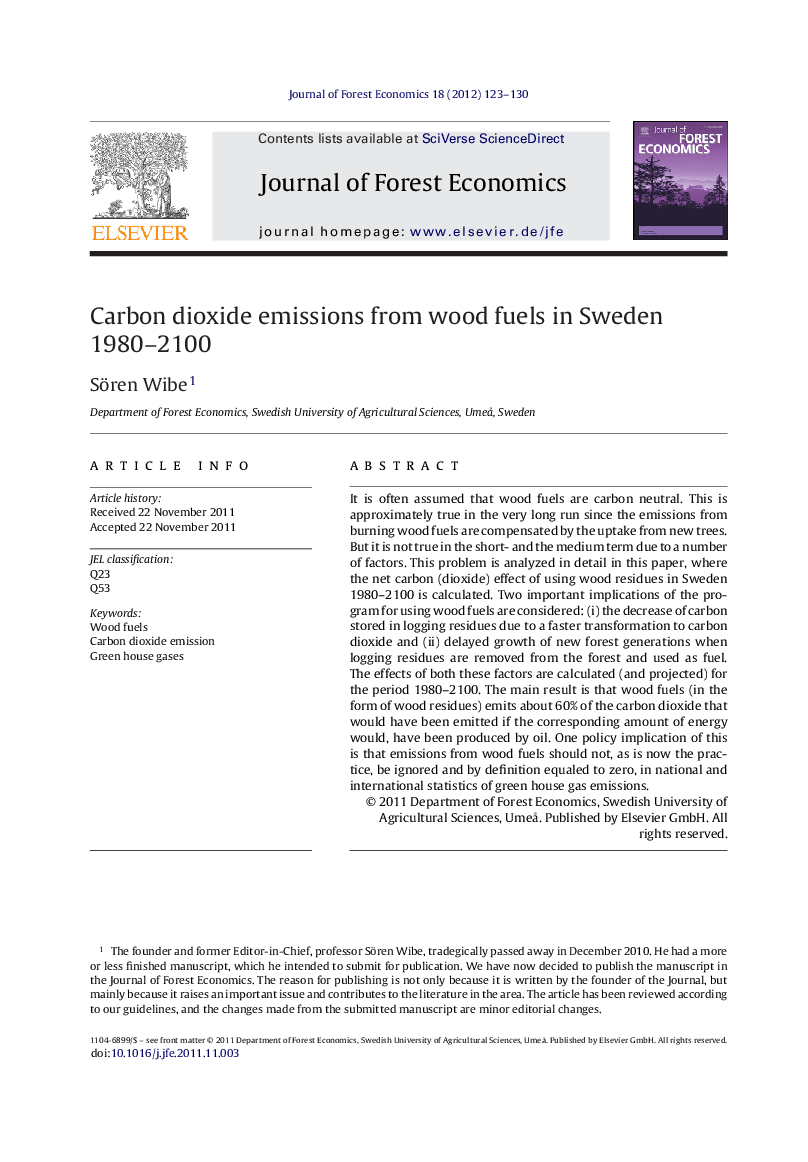| Article ID | Journal | Published Year | Pages | File Type |
|---|---|---|---|---|
| 92002 | Journal of Forest Economics | 2012 | 8 Pages |
It is often assumed that wood fuels are carbon neutral. This is approximately true in the very long run since the emissions from burning wood fuels are compensated by the uptake from new trees. But it is not true in the short- and the medium term due to a number of factors. This problem is analyzed in detail in this paper, where the net carbon (dioxide) effect of using wood residues in Sweden 1980–2100 is calculated. Two important implications of the program for using wood fuels are considered: (i) the decrease of carbon stored in logging residues due to a faster transformation to carbon dioxide and (ii) delayed growth of new forest generations when logging residues are removed from the forest and used as fuel. The effects of both these factors are calculated (and projected) for the period 1980–2100. The main result is that wood fuels (in the form of wood residues) emits about 60% of the carbon dioxide that would have been emitted if the corresponding amount of energy would, have been produced by oil. One policy implication of this is that emissions from wood fuels should not, as is now the practice, be ignored and by definition equaled to zero, in national and international statistics of green house gas emissions.
